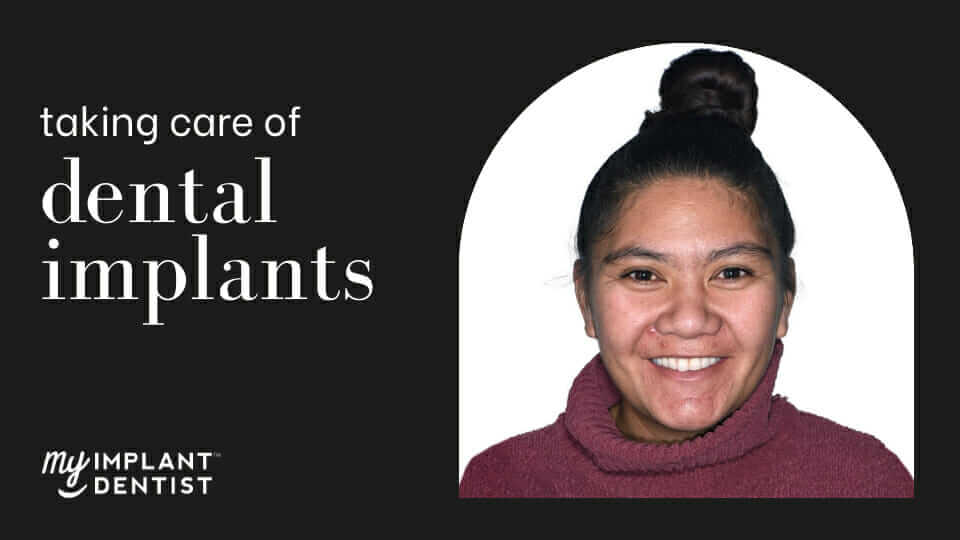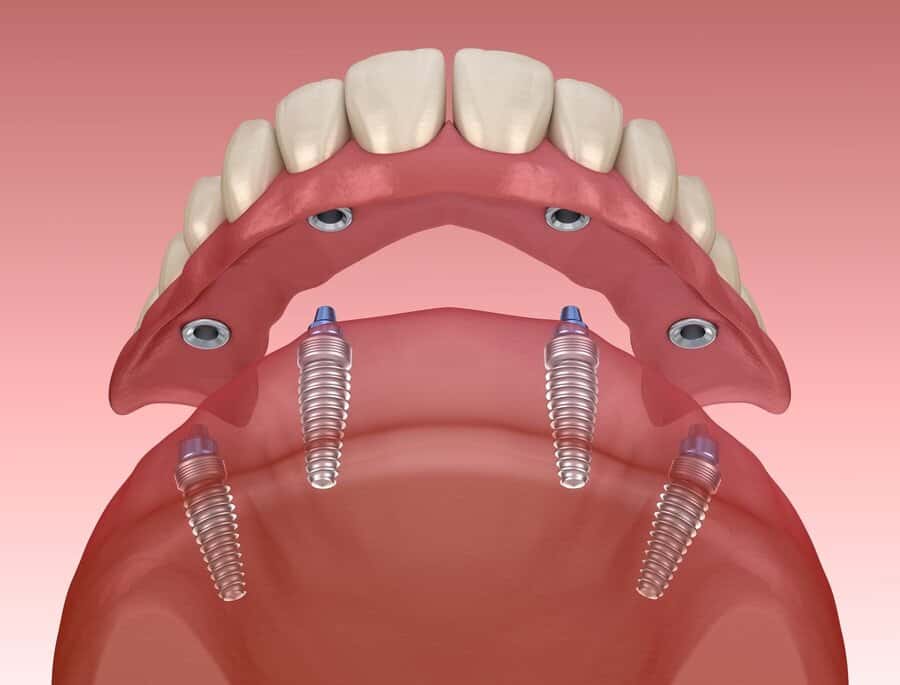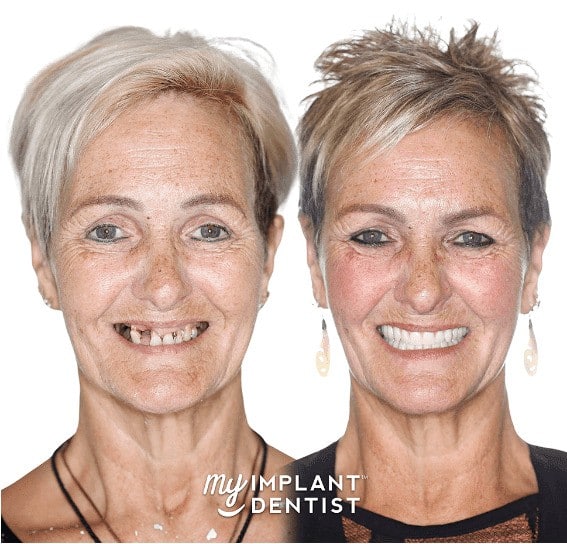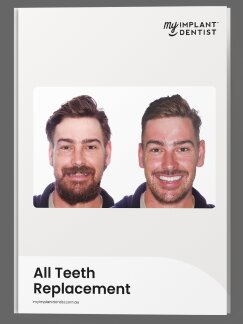
Contents
Dental implants have become increasingly common among people looking to improve their smile and self-confidence. However, for your dental implants to last a long time and continue functioning properly, you’ll need to take special care regarding your oral hygiene routine.
This article covers a brief overview of how to take care of your dental implants, as well as some useful tips you can use to maintain them daily. You can contact us to learn more about tooth implants in Brisbane and to find out the specific ways to care for dental implants.
Care For Single Dental Implants
Although it’s an artificial tooth, a single dental implant must be cared for. You need to have a proper cleaning routine after your dental treatment. Here are some tips on how to take care of your single dental implant:
- Use a soft-bristled toothbrush
A soft-bristled toothbrush is less likely to harm your gums or cause bleeding. Just like medium or hard bristles, soft bristles can also remove plaque and tartar.
- Brush Twice A Day
The risk of plaque buildup and tooth decay is decreased overnight if you brush your teeth before bed. This is because bacteria accumulate on your teeth during the day. Therefore, regular brushing is very important.
- Floss With Water
A water flosser is an electronic dental tool that uses pressurised water to dislodge and flush out microorganisms from teeth and gum pockets up to 6 mm depth.
- Use A Low-Abrasive Toothpaste
Avoid using toothpaste with abrasive substances like stain-removers or baking soda since these can damage dental implants made of porcelain and the gloss on acrylic.

5 Tips For Looking After Your New Dental Implants
Dental implants are a fantastic choice for anyone wishing to restore their smile and self-esteem, but they need to be cared for uniquely. The following are five guidelines for dental implant maintenance:
- Brush and floss daily
- Avoid abrasive products.
- Avoid sticky and hard foods
- Avoid alcohol and smoking
- Regular dental checkups at the clinic
Aftercare For Dental Implant Surgery
After your surgery, it is important to follow your doctor’s aftercare tips for a successful recovery.
Recovery Tips During the First 24 Hours
- Rest: do not drink through a straw, chew gum, or smoke for at least 24 hours. These activities can cause the surgical site to bleed.
- Ice Packs: apply ice packs to your cheeks for 20 minutes to keep swelling down.
- Pain Medication: take your prescribed pain medication as directed. Do not take ibuprofen (Advil) or aspirin unless directed by your surgeon. These medications can thin your blood and cause more bleeding.
- Sleep: sleep with your head elevated on pillows to minimise swelling.
Care For Days 2 To 4
During this time, you should be careful not to damage or dislodge the clot that forms in the socket. This clot is a natural barrier that protects the bone and nerve endings underneath.
- To help keep the area clean and free of food particles, brush your teeth gently with a soft-bristled toothbrush.
- Avoid using a straw, smoking, or spitting for at least 72 hours after surgery to prevent dislodging the clot.
- You can rinse your mouth with warm salt water starting the day after surgery.
Care For Weeks 1 To 4
Weeks one to four are critical for healing, so follow your oral surgeon’s instructions carefully.
- For the first few days after surgery, expect some bleeding and swelling. To help with bleeding, bite on a gauze pad for 30 to 45 minutes at a time. Swelling can be minimised by sleeping with your head elevated on two or three pillows and applying ice packs to your face for 20 minutes at a time, several times a day.
- It’s also important to keep your mouth clean by brushing and flossing gently. To avoid disturbing the surgical site, use a super soft toothbrush and brush only where your surgeon tells you it’s okay. You can also rinse with an alcohol-free mouthwash.
Diet and Lifestyle Considerations for Dental Implants
What you eat, and your lifestyle choices, can influence the success of your dental implants. Follow these guidelines:
Foods to Avoid for Dental Implants
To protect your dental implants, avoid hard and sticky foods that can exert excessive force or get lodged between the implant and gums. Opt for a softer diet initially, gradually reintroducing harder foods as your implants heal. Limit your intake of sugary and acidic foods, as they can contribute to gum inflammation and dental issues.
Maintaining a Balanced Diet for Dental Implant Health
A nutritious diet rich in vitamins and minerals supports overall oral health, including the longevity of dental implants. Consume a variety of fruits, vegetables, lean proteins, and whole grains. Adequate hydration is also important for maintaining healthy gums and overall oral hygiene.
Impact of Lifestyle Factors on Dental Implant Care
Certain lifestyle habits, such as smoking and excessive alcohol consumption, can compromise the success of dental implants. Smoking inhibits healing and increases the risk of implant failure, while alcohol can contribute to dry mouth and oral health issues. Minimise or eliminate these habits to promote optimal implant care.
faqs
How Do You Take Care Of Teeth Implants?
- Brush and floss regularly
- Avoid Abrasive Products
- Avoid Sticky And Hard Foods
- Avoid Alcohol And Smoking
- Regular Visit To The Dentist
How Do You Keep Full Dental Implants Clean?
- Use a soft-bristled toothbrush and gentle circular motions when brushing your implants.
- Be sure to brush all surfaces of your implants, including the chewing surfaces and back sides of the molars.
- Use fluoride toothpaste to help prevent cavities.
- Floss daily using an implant-specific floss or a floss threader.
- Rinse with an antibacterial mouthwash once or twice a day
When Can I Eat Normally After a Dental Implant?
The short answer is that it can take anywhere from two to six months for a dental implant to fuse with the bone in your jaw. This is called osseointegration. Once that happens, you’ll be able to eat normally again.
How Can I Make My Dental Implants Last A Lifetime?
You can make your dental implants last by following your dentist’s oral care instructions and going for check-ups every 3 or 6 months.
What Not To Do After Getting Dental Implants?
Do not smoke, avoid rinsing your mouth vigorously, and avoid sticky and hard food. Your dental health is very important.
Conclusion
Dental implants are permanent solutions to replacing missing teeth caused by accidents, cavities, or gum disease. Nonetheless, the dental implant procedure is an invasive procedure; hence, the healing period can be very critical.
It’s important to know that having dental implants doesn’t mean you’ll have to give up your dental hygiene. Your dentist will advise you on the next step to take concerning your dental care.
Visit any of My Implant Dentist clinics in Western Australia to get proper dental implant care. Our dentists are always available to help provide you with all the advice you will need to maintain a proper oral care routine.




















